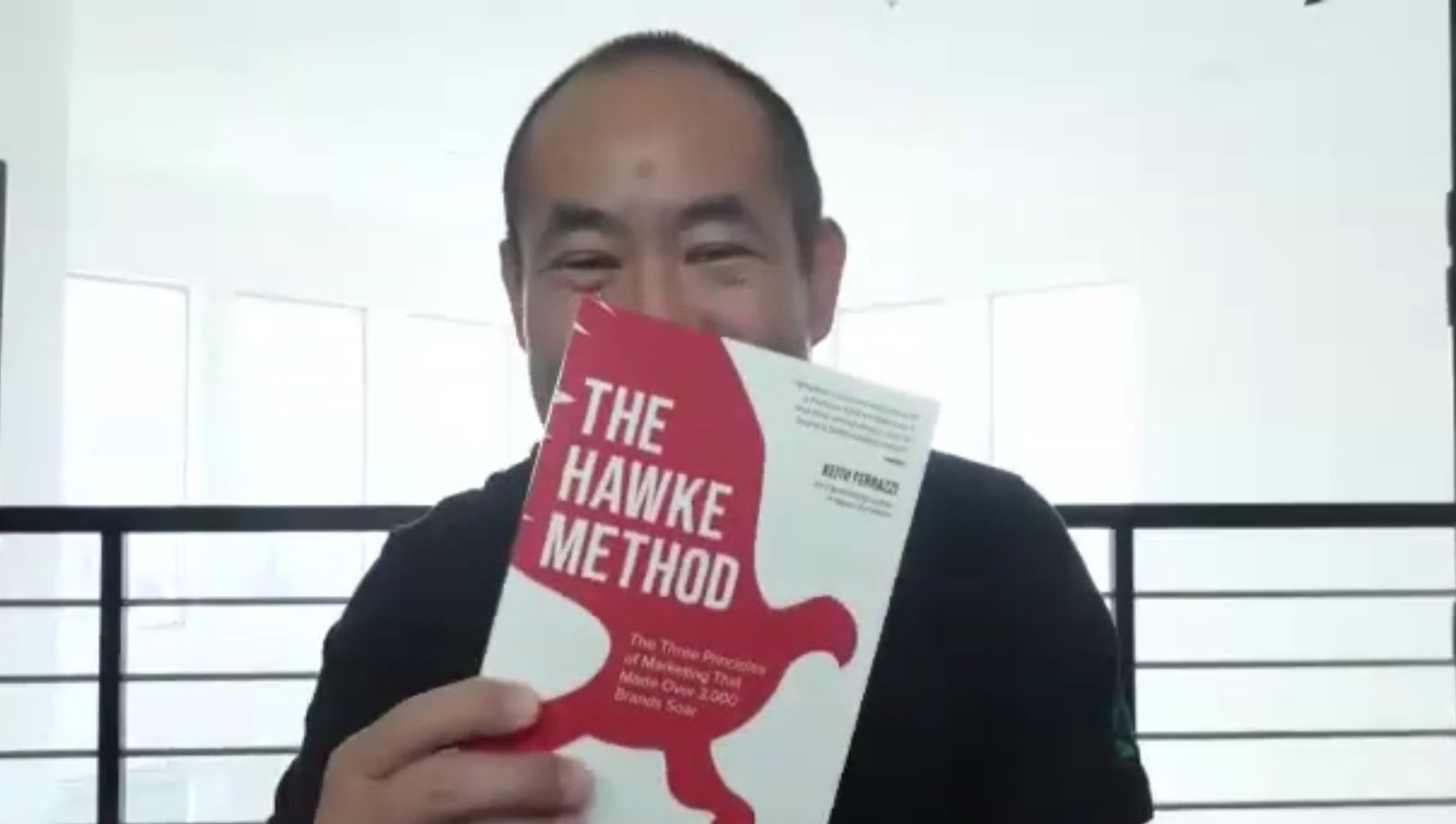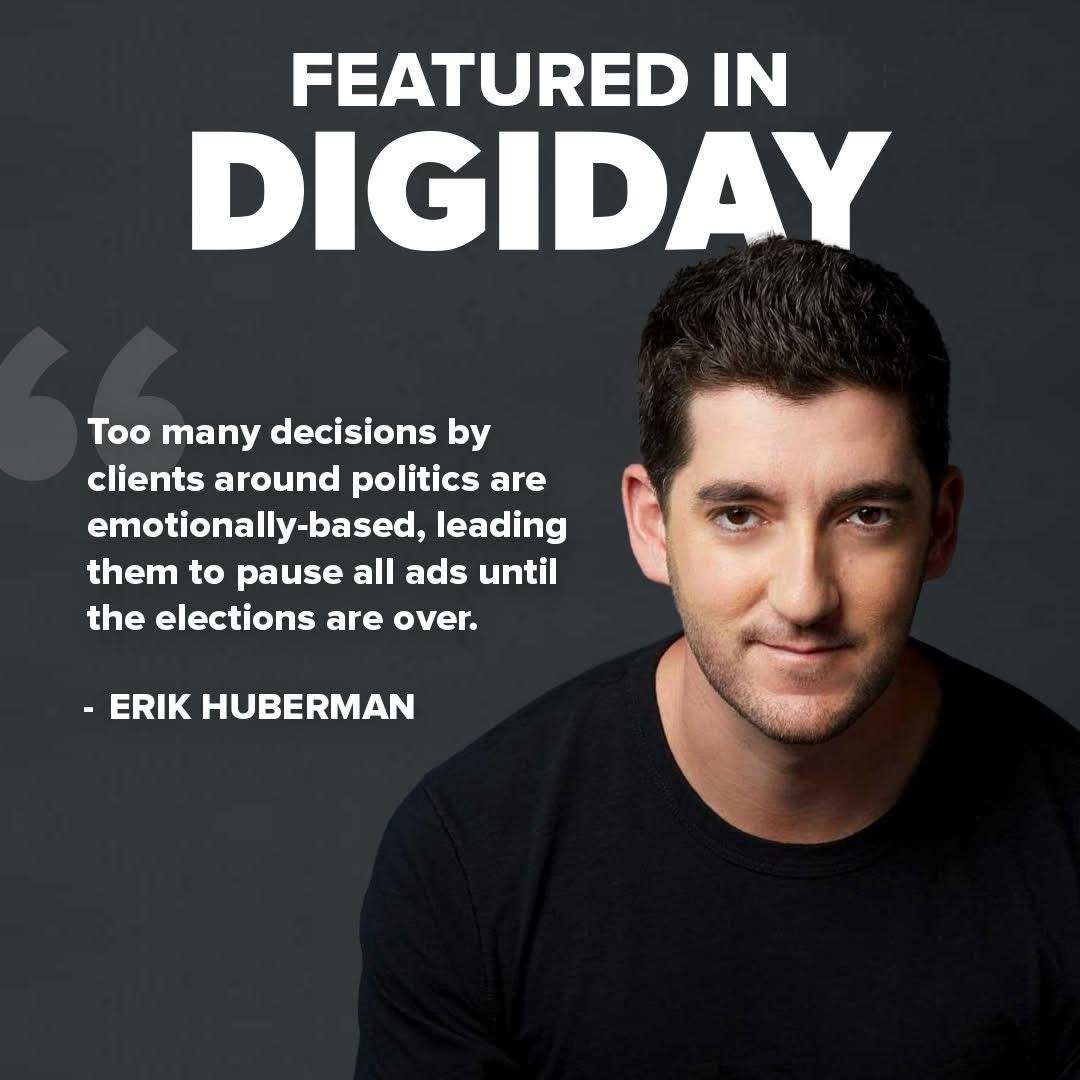
What’s one piece of advice you wish you’d heard before starting your own marketing agency? In this episode of the Coach Yu Show, I talk with Erik Huberman, founder of Hawke Media, about how he built his agency from the ground up. Erik shares what’s worked, what hasn’t, and where he sees the future of digital marketing and AI.

Over the years, Erik has become a digital marketing force—leading Hawke Media, authoring The Hawke Method, and growing an impressive personal and professional brand. Erik shared how being “actually good at marketing” is the most undervalued advice.

He emphasized that too many people jump into starting an agency without the skills to grow other businesses. They can close sales, but they fail at keeping clients because they lack real marketing chops. For Erik, sustainable growth hinges on delivering consistent results—not just landing the next deal.
Instead of growing your agency, you’ll spend all your time replacing lost business. That’s not scaling—it’s spinning your wheels.
Erik also emphasizes the need for relentless effort. “There’s no point where you can just chill,” he says. “Unless you’re done growing, you have to keep hustling. It never ends.”

We also touched on resilience—what it takes to keep moving forward when things get tough. For Erik, energy comes from two places: staying disciplined in his routines (like running, lifting, and maintaining a healthy diet) and keeping sight of the bigger picture. Momentum, he noted, makes hard work feel easier. But even in challenging times, it’s the ability to push through that separates successful agency owners from the rest.
What sets Hawke Media apart is the team’s relentless focus on quality and their ability to adapt to change. As Erik explained, the fundamentals never go out of style. The market shifts, technology evolves, and competition stiffens—but as long as you stay grounded in proven strategies and constantly strive for excellence, the opportunity for growth will always be there.
What people see online is the highlight reel—shiny Instagram moments filled with major acquisitions, high-profile partnerships, and successful fundraisers. But behind those wins, there’s an entirely different reality that doesn’t make it into social posts.
“We spend a lot of time making sure people see us as the best choice for marketing,” Erik explains. “Our goal isn’t to convince them they need marketing—it’s to show that if they’re looking for a partner, we’re the obvious answer.”
However, what you don’t see is the long hours and constant problem-solving. Erik spends 10 to 12 hours a day in back-to-back calls with clients, team members, and partners. He’s reviewing budgets, managing P&L discussions, and putting out fires—from last-minute insurance issues to unexpected legal challenges. These are the less glamorous but absolutely vital parts of building a business.

Erik’s straightforward advice is clear: know your craft, deliver real results, and stay the course. It’s this approach that has not only earned him the trust of his clients but also the respect of his peers.
In his view, life and business will always come with challenges—changing industries won’t eliminate problems entirely. “You’re not going to avoid life being hard by switching your job,” he says. “It’s about knowing when something truly isn’t worth it anymore.” For Erik, quitting isn’t a snap decision; it’s a rational conclusion reached only after careful reflection.
Eric points to a conversation he had with Lance Bachmann, who grew one of the largest SEO agencies, 1SEO, before selling it and shifting into roofing companies. Lance’s stance was clear: “Agencies are dead.” Erik has also encountered similar sentiment at industry events, where some predict that AI will replace traditional marketing roles.
Sometimes, when new technology arrives, we all start predicting the end of the world as we know it. It’s like the old “9 feet of horseshit” scenario people feared when everyone started riding horses into cities. Erik emphasized this point when he reminded us that, just as we transitioned from horses to cars, the market will shift, and we’ll adapt. That’s what we do.
AI isn’t wiping out agencies. Sure, SEO as we know it may change, and marketers will have to learn how to optimize for AI-driven search. As technology evolves, tools like Optimus robots are already starting to handle tasks that once required human intervention. While some view these advancements as a threat, Erik sees them as opportunities for agencies to adapt and deliver even greater value.
The idea that agencies are going to die just shows a misunderstanding of what agencies are,” he says. “It’s not that SEO marketing will completely vanish; it’s that the role and approach will evolve. For example, optimizing for AI is now a growing market, and agencies are well-positioned to help clients navigate that.”
Businesses still need to be found, whether that’s through Google, ChatGPT, or something else entirely. The core intent is still there. Agencies that understand that and adjust their approach are going to thrive, not fail.
Erik noted how we’re approaching a tipping point—2025 may very well be the year where agentic AI moves from simply talking to us to actively performing meaningful tasks. Much like self-driving cars have already begun to reshape transportation, agentic AI will reshape how agencies operate and deliver results.
Advice for Young Adults: Embrace New Opportunities, Not Old Paradigms
The world is different now than it was when our parents started their careers—and that’s a good thing. Erik pointed out that today’s young adults have a wealth of opportunities online. You can start a side hustle, launch an online store, or build a digital brand using tools that didn’t exist decades ago. Instead of worrying about what worked in the past, focus on what’s possible now.
While some fear that AI might cause widespread unemployment, Erik takes a different view. “Things are going to change, yes. But I’ve built my career by adapting to change,” he says. “I remember when people said email was dying, and now it’s still one of the most profitable channels. It’s about evolving with the market, not fighting the inevitable.”
Erik also referenced Sam Altman’s influential article, ‘The UBI of Everything,’ which explores how technology could make basic goods and services nearly free. He sees parallels in the agency world, where embracing AI and innovation will reduce costs and create new possibilities for growth and collaboration
Erik also offers insight into how Hawke Media stays ahead of trends. “We built Hawke AI, a tool that digests marketing and revenue data from 6,000 companies in real time. It shows us exactly how the market is shifting so we can make informed decisions,” he shares. “Instead of relying on external perspectives, we analyze our data and talk to smart people within the company. That’s how we navigate challenges and stay ahead.”
We discussed the idea of formal certification for marketers, similar to the credentials accountants or hairstylists must earn. Marketers handle huge budgets and make impactful decisions, yet no standard credential exists to prove their ability. Erik finds it odd that simpler industries have strict regulations, while marketing—a field with high stakes—does not.

He explained the challenges of creating a certification system. To make it legally binding, you’d need to work state by state, persuading each one to adopt the idea. This approach would be a logistical nightmare and could lead to unintended consequences.
For instance, if California required marketers to obtain a license, top talent might move to states without such regulations. Because marketers can work remotely, these regulations may not even achieve their intended goal of keeping skilled professionals in-state.
Erik also highlighted the difficulty of getting the industry itself on board. When he approached lobbyists, they refused to support licensing because they didn’t want to regulate themselves. This internal resistance made it clear that, even though the concept has merit, the industry is not ready to embrace it.
He explored opportunities in other countries. Governments in Brazil, Pakistan, and other developing nations seem more open to standardized marketing credentials. These countries are looking for ways to raise professional standards and equip marketers with better tools to thrive in an ever-changing industry.
Ultimately, Erik concluded that implementing a licensing system in the U.S. would require someone who can dedicate full-time effort to the cause. It’s not something you can tackle as a side project. However, he believes that establishing a standard could greatly benefit the industry and is worth pursuing despite the challenges.

Leverage the tools and strategies at your fingertips, and begin building your digital presence now. Whether it’s launching a side hustle, expanding your skillset, or investing in proven marketing techniques, the time to act is now. The world of digital possibilities is waiting—go claim your spot in it.
